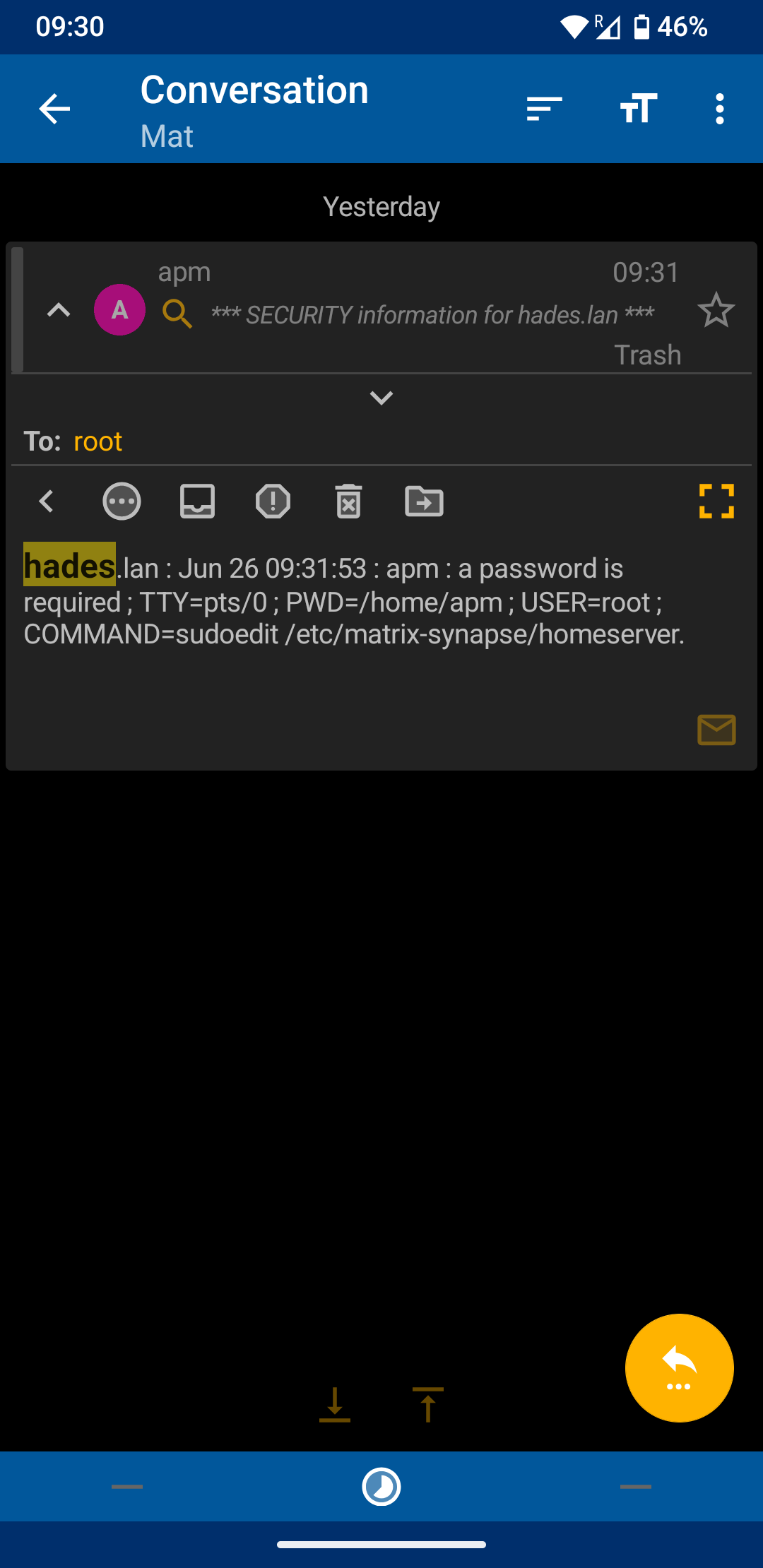Absolutely +1 for flakes. It’s got some annoying UX sometimes (make sure you git add any new files before building!) but absolutely makes up for it by its features.
- 2 Posts
- 72 Comments
NixOS is indeed probably the safest way to run an “unstable” distro. No matter what you do or mess up you can always reboot back.
I (maybe) ended distrohopping last year when I gave NixOS a shot. I can’t recommend it for beginners but once you understand generally how things work on Linux (and have an interest in programming) it’s a superpower to be able to define your entire setup as a single git repository. If something ever breaks, I can reboot into an older commit and keep using my computer, or branch off in a different direction… I’ve only scratched the surface of NixOS and yet I can already make a live USB containing my setup with a single command, or deploy it (“infect”) to another machine and manage e.g my work desktop and my personal laptop sharing most settings. Also it taught me about Nix (the package manager, which also runs on any distro and macOS independent of NixOS) which I now use to set up perfect development environments for each of my projects… if I set up dependencies once (as a flake.nix shell), it’ll work forever and anywhere.

 6·10 days ago
6·10 days agoHappened to me too, I was so confused. I hope it is a bug… EDIT: Found the report: https://gitlab.com/relan/fennecbuild/-/issues?show=eyJpaWQiOiIxMjAiLCJmdWxsX3BhdGgiOiJyZWxhbi9mZW5uZWNidWlsZCIsImlkIjoxNjk5MTU5NTd9
Ah I see, haven’t been on “stable” distros for a long time so I wasn’t affected. I’ve enjoyed the good support and the video stuff is definitely nice. On the AMD side, still no idea how to encode or decode anything on my Framework 16, meanwhile Intel is acing it.
Hmm, I run an Arc GPU at work without any issues. Just using plain mesa on NixOS. The Intel devs were quite responsive when we ran into issues as well.

 3·13 days ago
3·13 days agoPeeeeck… neeeeeck!!!

 3·15 days ago
3·15 days agoAwesome! Maybe I can finally switch to using it, though OBS settings are quite confusing.

 18·15 days ago
18·15 days agoomg I totally accidentally enabled this

I’d bother removing it but it’s kinda funny to get an email reprimanding me when I ctrl+c out of a sudo command I mistyped, and maybe it will serve as a warning if it gets compromised :p

 7·20 days ago
7·20 days agoVery cool! Added the RSS.

 3·23 days ago
3·23 days agoHmm no, I haven’t had this issue. Tempo works fine for me, it’s been mostly bug-free except for a few oversights:
- search doesn’t work offline
- can’t play AAC files
- can’t skip songs via my Pebble watch
I’m (still) on a Pixel 3a, running LineageOS, in case that matters.

 3·23 days ago
3·23 days agoI did use Feishin for a while, it’s an excellent music player but unfortunately not a native program. I might switch back to it from Tauon though, as actually playing the whole song before going to the next is a pretty nice upgrade hehe

 3·23 days ago
3·23 days agoIt looks really good indeed, and I don’t mind at all to pay for apps (I pay for FairEmail)… however it is very strange for me to add a nonfree app to the list I use every day… everything else is open source.

 13·23 days ago
13·23 days agoI currently host Navidrome, which has an okay web player. On Android I use “Tempo” (though it is unmaintained) to connect to it, and on Linux I use Tauon (though it has very poor playback). I could not find a native Linux client that is not buggy unfortunately, so I’m also on the lookout for better solutions! I’m not familiar with the device you are talking about but every client I tried supports MPRIS, which are the regular media controls that can be used via the
playerctlcommand, so you should be able to hook things up that way.

 5·1 month ago
5·1 month agoAh, yes… if only. I’ve upgraded internally SLR 1.0 -> SLR 3.0 but we can’t deploy it until a bug is fixed in the Steam client that causes, when we enable SLR 3, all Steam Decks to run the Linux build. Yes, Steam Decks run the Proton version, solely because the save file has different letter casing (yes I know it’s so annoying haha). We’ve spent quite some time on this and there’s no way to fix this without some folks losing their saves, and that is absolutely not an option. Soooo for now desktop Linux is stuck on runtime 1.0, and Steam Deck users are stuck on Proton. “fun” :/

 62·1 month ago
62·1 month agoAt my studio we maintain a native Linux version with a custom game engine, and it indeed takes a lot of time. I don’t consider Proton a viable option as we lost the ability to integrate with Linux-specific stuff such as Wayland APIs or better input, but I can definitely see the appeal of switching to Proton… if your team uses Windows. If you have some developers on Linux, you naturally get a Linux build (if using cross platform APIs ofc) and it’s actually faster to cross-compile a Windows build every once in a while (skip the slow ntfs I/O) and ship that. But it requires getting more of the team on Linux :)

 2·2 months ago
2·2 months agoI don’t have any advice to give but I want to thank you for considering this angle while building the website.
Really cool to see more WINE Wayland support, I ought to try it out and see games running natively on my system!

 2·2 months ago
2·2 months agoThanks. I’ve successfully “upstreamed” some of my patches to some courses, but sadly still most of the education is Visual Studio-based. It’s good to see more people in the new years contacting me after asking teachers about Linux and being given my name for help, but of course I want this to be a base part of the curriculum!
What magic incantation are you using? My OBS either crashes with the ffmpeg setting or uses software enc, and is always blurry. Firefox does all video and audio enc+dec on CPU. Am on all-AMD NixOS and so far gave up on any hw accel for media.